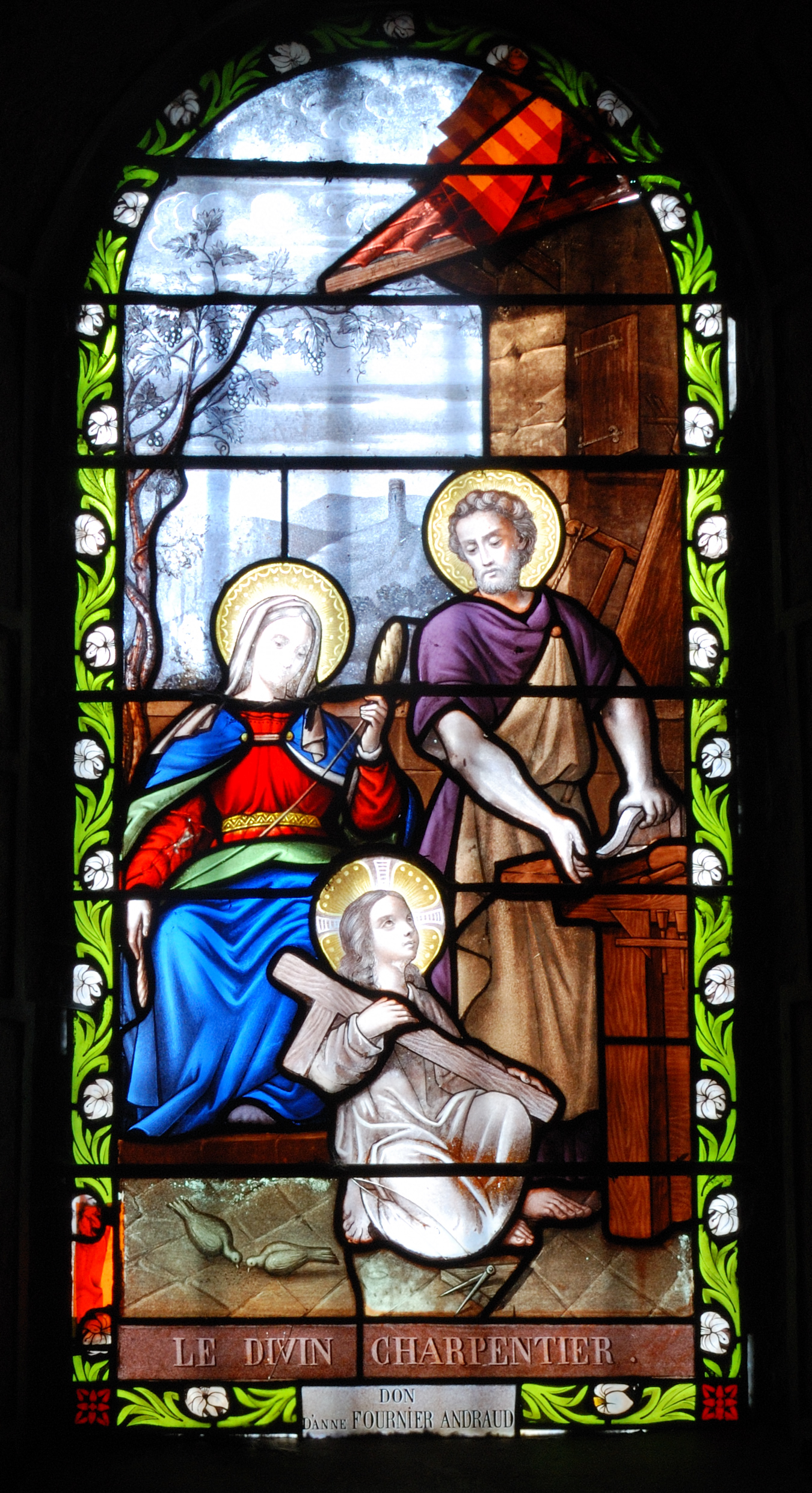Holy Family (27 Dec 2009)
Sir 3. 2-6, 12-14; Ps 128; 1Jn 3. 1-2, 21-24; Lk 2. 41-52
Homily of Fr. Paul Panaretos, S.J.
Up to Us Now
Celebrating the incarnation of God moves in a variety of directions. On the birthday of our Savior we celebrated God abiding with us and sharing our human nature by being born of Mary. Jesus began his human life, helpless and in need of care, nourishment and protection.
The Solemnity of the Holy Family continues celebrating the incarnation of God. The focus is on us: how we live the mystery of God with humans. The Book of Sirach highlights our interactions with one another urging patience above all. Patience with one another is not merely good manners. Patience with one another incarnates God’s merciful kindness, which more than a virtue, offers us divine life. Scripture connects it with freeing us of sin: patient kind-ness will not be forgotten, [it will be] firmly planted against the debt of [our] sins.
Patient kindness is one way that you and I take part in revealing the mystery of God with us. The incarnation joins us to God through Jesus by their Spirit. Holy Spirit is the revealing power of the mystery of God with us, and Holy Spirit makes this mystery known through us just as the Spirit did through the first Christians.
 Holy Spirit widens our scope of family beyond family units to include communities of faith and the human community in its local and wider, even global, incarnation. The mystery of God with us is not imprisoned in the past. It isn’t a sentiment we take out, dust off and decorate once a year at Christmastime. The mystery of God with us is present and has the shape of the people God creates in every time and place. The mystery of God with us is now: so tiny a word yet always bursting the bonds of time! The First Letter of John made that clear: we are God’s children now.
Holy Spirit widens our scope of family beyond family units to include communities of faith and the human community in its local and wider, even global, incarnation. The mystery of God with us is not imprisoned in the past. It isn’t a sentiment we take out, dust off and decorate once a year at Christmastime. The mystery of God with us is present and has the shape of the people God creates in every time and place. The mystery of God with us is now: so tiny a word yet always bursting the bonds of time! The First Letter of John made that clear: we are God’s children now.
The now of the mystery of God with us is ongoing opening and deepening discovery of being created anew. Jesus’ Spirit Jesus gave us to continue the revelation of God with us. Our choices to act patiently and kindly are part of being recreated; and our choices to act patiently and kindly join God in revealing the mystery of God becoming one with us and our daily progress in becoming one with God.
The mystery of God with us is mutual. The best image I can offer is our response to an infant. Lying on its back and looking up at an adult or even an older brother or sister, what does an infant naturally do? It raises its hands and feet upwards to us, and we bend toward the infant.
In a Christmas homily St. Bonaventure described the incarnation in harmony with how infants and we move together: “the eternal God has humbly bent down and lifted the dust of our human nature into unity with [God’s]own person.”1 With unmatched loving desire, we may say God could do nothing else but approach us and assume our nature so that we might again share the nature of God.
Beginning with the Holy Family and extending beyond family ties to all people, we are invited each day to imitate God bending toward us by how we are with one another. Simultaneously we are encouraged to reach toward each other in our needs, not only for help and for mutual strength but to allow others better to imitate our God of patient kindness. By that mutual enterprise we continue to advance[] in wisdom and age and favor before God and the human family.
In your daily 15 minutes with Jesus this week, pause in the presence of our Triune God. Ask Mary and Joseph to present you to Jesus. Allow Jesus to ask you that question he asked his parents: Why are you looking for me? Ask for the grace of honest courage; then in your words speak with Jesus your answer. It may come quickly; it may come after doing your daily 15 minutes more times during the week. Close saying slowly the Lord’s Prayer, which Jesus gave us to shape what we seek, what we speak and how we follow Jesus and find him.
____________
- Sermon 2, “On the Nativity of the Lord.” What Manner of Man? Sermons on Christ by St. Bonaventure, trans. Zachary Hayes (Chicago: Franciscan Herald Press, 1989), p. 57.
